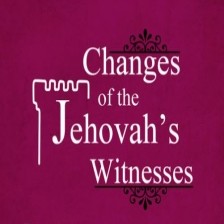The Fragment mentions a non-Biblical book, the Shepherd, and states that a man named Hermas wrote it “very recently, in our times, in the city of Rome.” Scholars date the final writing of Hermas’ Shepherd between 140 and 155 C.E. Thus, you can see why the Greek-language original of the Latin Muratorian Fragment is dated to between 170 and 200 C.E.
The Watchtower Announcing Jehovah’s Kingdom. February 15, 2006 p. 14
